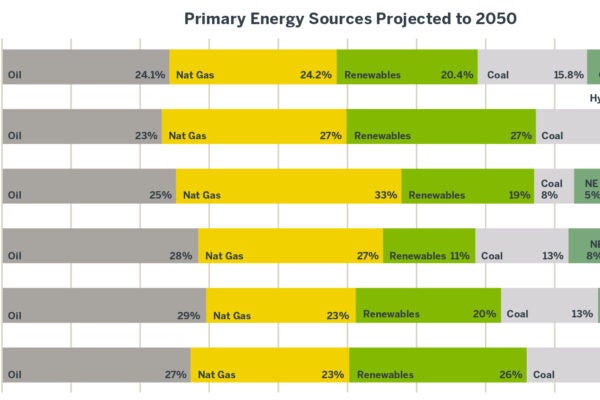For Battered Brands, Consumers Can Be Defenders
By learning why commentators champion brands against social media critics, companies can encourage them
Based on the research of Wayne Hoyer

On New Year’s Eve, 2019, a Domino’s Pizza delivery worker sold pizzas for $30 in Times Square, even though the same pizza would normally sell for half that price. When New York City’s mayor blasted the chain online, many customers sprang to its defense. They argued the price was reasonable, considering how difficult it was to get through the crowds.
“If the $30 was too expensive, then nobody would have bought it,” tweeted one customer.
The story points to a potentially valuable resource for companies facing attacks, says Wayne Hoyer, professor of marketing and James L. Bayless/W.S. Farrish Fund Chair for Free Enterprise at Texas McCombs. He calls these online customers “brand defenders.”
“In today’s world, everything is a two-way interaction, and consumers get involved in the process,” he says. “They make videos and they stand up for the brands. They can be very valuable in offsetting negative communication.”
In newly published research, Hoyer explores what drives different types of defenders and how companies can appeal to each type.
With a team of marketing researchers from the University of Bern in Switzerland — Clemens Ammann, Andrea Giuffredi-Kähr, Bettina Nyffenegger, and Harley Krohmer — Hoyer first looked at how often consumers stand up for brands online.
The researchers reviewed three months’ worth of comments on Facebook pages of eight U.S. brands. On average, 1 in every 20 comments was a defense against criticism, ranging from 1% of total comments for AT&T to 10% for Tesla.
Love, Justice, and Ego
The team contacted 10 of the commenters for interviews, then followed up with an online survey of 570 people who had refuted brand critics within the past six months. Using cluster analysis, they broke the defenders into three groups, each with a distinct set of motivations.
Brand promoters. These customers have the strongest satisfaction with the brand and attachment to it. They feel an altruistic desire to give something back.
“People feel emotionally connected,” Hoyer says. “So, when the brand is being attacked, they’re being attacked as well.”
Companies can encourage promoters by acknowledging them, he says. “People like to be told, ‘We appreciate you.’
“It’s all about building strong relationships. They love the brand, and they love to be recognized by the brand.”
Justice promoters. This group is not emotionally attached. Its main motivator is a feeling that the brand is being wrongly condemned.
“They just believe in fair play,” Hoyer says. “They simply want to restore equity — not because they love the brand, but they think it’s unfair it’s been attacked.”
Because they feel less strongly about the brand, he adds, “It’s tougher to market to them. You have to appeal to a sense of fairness.”
Self-promoters. Some defenders are motivated as much by ego as by attachment.By speaking up, they present a positive online image. They may also hope to get rewards from the brand.
“Those are people that like to get attention on social media,” Hoyer says. “They figure if they stand up and say something, they’ll get a lot of likes. If they see a brand being attacked and defend it, they can get followers.
“It’s not about the brand. It’s about Me in a general sense and wanting attention online and promoting myself.”
When it comes to mobilizing all three types, the researchers suggest, it can be effective to send private thank-you messages or to acknowledge their comments with likes. Customers could also be treated to rewards such as raising their level in an online game.
What companies should avoid is being too obvious about their encouragement. “Publicly praising brand defenders should be approached with caution,” the researchers write. “It may give the impression that they are company representatives, potentially harming credibility.”
“Beyond Strong Bonds: A Typology of and Motivational Insights into Online Brand Defenders” is published in Journal of Interactive Marketing.
Story by Sharon Jayson
About this Post
Share:


